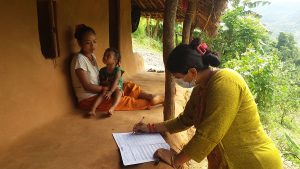 As of March 31, 2020 (3:32 GMT), the global spread of Covid-19 said to be caused by the SARS-CoV-2 (the novel coronavirus) has reached 697,244 people with death counts of 33,257 individuals, according to the World Health Organisation data.
As of March 31, 2020 (3:32 GMT), the global spread of Covid-19 said to be caused by the SARS-CoV-2 (the novel coronavirus) has reached 697,244 people with death counts of 33,257 individuals, according to the World Health Organisation data.
The stats that come every day on the news are still alarming; the figures seem to be constantly on the rise and have triggered a massive global outbreak. The situation is grim worldwide and as of today, no country has been able to contain the deadly virus for which there is no vaccine or treatment and has already spread to over 200 countries and territories in the world since first appearing in China a few months ago.
Although one of the latest news reports that a vaccine called mRNA-1273 has been already developed and a clinical trial on humans will soon begin in Seattle, USA, it might take some time before the positive results come.
The latest WHO updates issued via a press conference conducted in Geneva, Switzerland, stated that an experiment is being carried out on a patient at Oslo University Hospital, Nyalden, Norway, the first-ever volunteer so far since the outbreak of Covid-19.
Grim situation
Countries worldwide are locking down people, and public places. Borders are being shut down. And it seems no country in the world has to this date staved off this disaster. In March 2020, the WHO declared the spread as a pandemic.
https://www.youtube.com/watch?v=tZ2JlMCbt5Q&feature=youtu.be
In Nepal too, people are fully aware of the dire situation and are informed, alert, and intellectually agile. Catchphrases like “social distancing”, “quarantine”, and “isolation” hog the headlines each day. People are shunning exposure to crowded places and gatherings. Safety precautions against the deadly virus have become mandatory. The automated statutory warning initiated by Nepal Telecom on every call you make or receive has further put people on their guard.
Till early last week, only a solitary case of Covid-19 was reported and successfully treated at the Shukraraj Tropical and Infectious Disease Hospital, Teku. But a number of news articles that followed–“a tested-positive case of Covid-19, a 19-year woman arriving from France on the Qatar Airways, admitted at the Sukraraj Hospital is undergoing treatment,” and “a man isolated in a special coronavirus-earmarked hospital in Bharatpur, Chitwan died while undergoing treatment”–has reawakened new fear and uncertainty among the Nepali people.

The latest news reports that the number of cases tested positive has reached five individuals in Nepal. Meanwhile, last week came the official lockdown and the government directive to the citizens not to leave their homes. It looks we are at the complete mercy of this fatal illness that seems invincible. And the world seems to be fighting a losing battle.
Our lives have been reduced to nothing but a ‘solitary confinement’. But the world is not giving in to this deadly disease so easily; the battle against the deadly virus is ongoing and the scientists, the world over, have all combined and are working day and night in putting their best possible efforts to address it.
Holistic approach
Do you not think at this hour of grave crisis, we have to strengthen ourselves both mentally and physically? In plain language, we have to keep our wits about us. Apart from abiding by hygiene and sanitations and the basic precautionary measures as directed by the WHO, is it not time we kept ourselves fit and healthy and also think about our daily dietary requirements?
This is the time we have to take a holistic approach to our lifestyle and prepare ourselves to stay motivated, eat properly, do a daily workout, avoid stress and sleep well. They are the most essential factors and stand as the underpinnings for a healthy life.
Food contamination

It goes without saying, we have to eat and buy groceries, fruits, vegetables, and meat and poultry to meet our daily dietary requirements. The question is: how safe is the food in the market? When going to the market is in itself a hefty proposition now, buying at crowded shops or supermarkets is no less than a ‘trial by ordeal’ because to break the six-foot social distancing rule seems but impossible.
The question has become a global issue. A growing unease and the sense that you are never too sure what might happen next suspend in mid-air over our heads. The world is gripped by uncertainty and doubts followed by unhealthy speculations and gossips regarding the possibility of the food we buy getting contaminated by the coronavirus. It’s but natural as the spread of the virus shows no letting up.
In the USA and Europe, as restaurants shut down, most working people still buy take-out food catered by food outlets and drive-ins. Angela L Rasmussen, PhD, a virologist in the faculty of the Centre for Infection and Immunity at the Columbia Mailman School of Public Health in an article by Victoria Forster for Forbes says: “There is no evidence that SARS-CoV-2 can be transmitted by eating food. I imagine that if this is possible, the risk is extremely low.”
Going by the experts, same goes for buying goods at the local grocery stores and vegetable markets. No evidence has come to the notice suggesting Covid-19 is passed on through food or the water system. The main risk of transmission is from close contact with infected people.
“It’s not about the food that you buy, it’s about the interaction you have with other people at the grocery store.” said Brian Labus, a professor at the University of Nevada Las Vegas’ School of Public Health for a Huffington Post story. Latest research writings by experts also substantiate these findings.
FDA, the US Food and Drug Administration, also states, “Unlike foodborne gastrointestinal (GI) viruses like norovirus and hepatitis A that often make people ill through contaminated food, SARS-CoV-2, which causes Covid-19, is a virus that causes respiratory illness. Foodborne exposure to this virus is not known to be a route of transmission.”
“The SARS- CoV-2 virus is usually transmitted through direct contact with an infected person’s body fluids like from coughing or sneezing or indirectly through contact with surfaces. Coronaviruses need a host and cannot grow in food,” states Dr. Laxman Jessani, Consultant, Infectious Diseases, Apollo Hospitals, Navi Mumbai, in an article in The Indian Express.
Down-to-earth precautions
According to the WHO, we should avoid consumption of raw or undercooked food such as meat products, raw milk or uncooked vegetables to stave off cross-contamination.
Buying at the market has posed a world of problems. It is, however, sensible not to take chances when you go out to buy your groceries and vegetables. A friend of mine from the States has devised a seemingly ingenious idea on how to handle the groceries at home after back from the local bazaar or a supermarket. He calls it the “Three-Box System.” Let’s check it out.
Day 1 – While wearing gloves (always), I put the day’s newspapers and mail, and any grocery or other purchases brought home in paper or plastic bags, all in one box.
Day 2 – I do the same in a second box.
Day 3 – Ditto.
Day 4 – I remove what is in box no.1 (assuming it is safe to enter the house). I put the new stuff in the box in its place . . . we keep the boxes rotating like that. He wrote: “It works for us.” Maybe it will work for you as it does not sound very complicated.
He further wrote: Here are some things you can consider doing, same as we are doing although, so far, not mandated by government (other than the stay-at-home rule, and social distancing, etc.)…

- When going out to shop, etc, (as rarely as possible), we wear old clothes that are easily washed and dried afterward.
- Wear gloves that are also easily washed and dried when you come home. Wear a mask, too, if you have one. Before entering your house, shed your clothes and put them away for washing. Take a hot shower using a lot of soap and change into fresh clothes.
- Go to the store, do your best to maintain a physical distance of six feet from others (virtually impossible, but try!), and don’t worry about the store clerk’s hands putting food in your bags. If you use a grocery cart, wipe it down first with a sanitising wipe.
- Bring the groceries home, and outside on the stoop or in a garage or adjacent shed, set them down, then use either a hot wet soapy washcloth or sanitising wipe to clean them off.
Perhaps you should have it ready ahead of time. Regarding sanitising wipes or hand cleanser, the authorities say the best has 60% alcohol content, though wipes with essential oils also work. Wipe everything brought into the house as best you can. Rinse all veggies and fruits etc, with clean potable water. You can use soapy water too, if appropriate. And wipe down the surface on which you are setting the wiped or rinsed items, after putting them away in the fridge or on a shelf.
- About the bags — either plastic or paper — while still wearing your gloves, set them aside in a place you don’t often go, for a full three days.
Don’t touch them until the 3rd or 4th day. By then, any virus droplets will have disappeared or died or whatever. The findings recently announced in a journal point out that the virus survives on cardboard, paper, plastic, etc, for up to three full days!
Stay safe, take every single safety measure possible. “One of the most important preventive measures for mitigating viral and food-borne illness while working with food is to wash hands with soap and water frequently, in-between the handling of raw and uncooked foods, and before handling any food,” said Dr. Matthew Curran, FDACS Director of Food Safety.
























